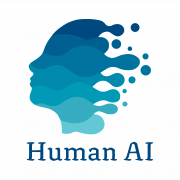Measurement of skills, personality and human development
James Heckman, Nobel laureate in economics, directs the Center for the Economics of Human Development at the University of Chicago (CEHD). In his quest to provide opportunities for human development, he has researched the impact of personality on personal development, concluding that only 2% of test performance results are explained by people’s IQ, with non-cognitive skills being a relevant predictor of academic achievement.
Today, education focuses primarily on cognitive or “intelligence” test scores. But, being smart does not imply that you will do better in life. Performance, well-being, achievement in life; it depends on more than cognitive skills alone. Non-cognitive characteristics, including physical and mental health, as well as perseverance, attentiveness, motivation, self-confidence and other socioemotional qualities are, in fact, essential.
The center directed by J. Heckam, which they define as “a catalyst for collaboration between economists, biologists, psychologists, neuroscientists and sociologists interested in methodological innovation”, has an advanced line of research on Assessing the role and impact of non-cognitive skills.
Non-cognitive abilities have a major impact on many human dimensions: on future earnings, employment, work experience, participation in risky activities, compliance with health protocols, and even the potential commission of crimes.
In a unique, multidisciplinary, multinational research effort, CEHD, is investigating how personality traits, executive function, and economic preferences predict academic performance in science, technology, engineering, and mathematics careers.
In 2018 it brought together numerous researchers to showcase advances on “Measuring and Assessing Skills: real-time measurement of cognition, personality and behavior” starting from the following premises:
- Any effective personalized education system will need to inventory the broad range of skills that can predict achievement in school and in life.
- Traditional paper-and-pencil tests are quite cumbersome and are not designed to capture specific skills.
- Self-reports of personality and behavior are unreliable.
- Teacher assessments are subjective (though predictively more reliable), time-consuming, and often not comparable to reports.
- Administrative data have predictive power, but still need to be aligned with traditional measures.
Promoting non-cognitive, social-emotional skills is part of a successful intervention for human development. Still, according to CEHD, more research is needed in order to study which method is able to measure them accurately.
If you want to test an AI capable of evaluating them, request the demo: 👉🏼 tu-demo.humanaitech.com 👈🏼









